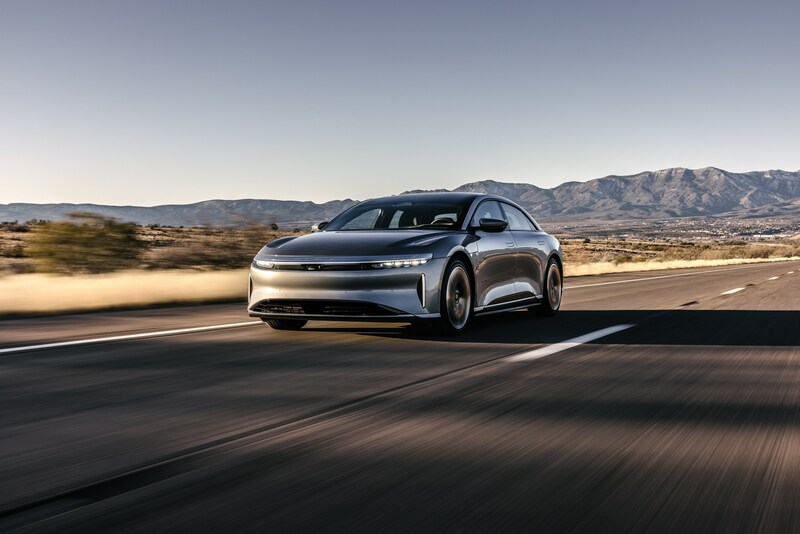
Lucid Motors plans to build just 9,000 electric vehicles in 2024, only 500 to 1,000 more than it made in 2023, as it struggles with demand for its luxury sedans. If it sticks to that number, that means Lucid will wind up building around 10% of the 90,000 EVs it predicted it could make and sell in 2024 when it went public three years ago.
The chasm between the new figures and those original expectations spotlights how much freedom companies like Lucid had in promoting the reverse mergers that helped so many become publicly listed. And it’s a sign of the brutal reality Lucid now faces: that it’s still scrambling to find buyers and losing money on every EV it builds.
Lucid announced the 2024 production targets on Wednesday alongside its financial results for last year, where it shared that it lost $2.8 billion in 2023. The modest projection comes a few days after the company slashed the prices of its Air sedan by $8,000.
CEO Peter Rawlinson has spent much of the last year talking about how important it is for his company to improve its sales and marketing efforts, while also pointing to the upcoming Gravity SUV as a potential boost. The Gravity is one of the reasons Lucid originally forecasted being able to make and ship 90,000 vehicles in a few short years. In fact, in the presentation Lucid used to promote its 2021 merger with a special purpose acquisition company, it predicted the Gravity would outsell the Air sedan in 2024.
The reality, though, was that Lucid ran into a number of supply chain and production problems in the early days of the Air and in 2022 had to push back the launch of the Gravity. The company finally revealed the SUV in November 2023, and says it plans to start building them by the end of this year.
The Gravity means a lot for Lucid’s immediate future — so much so that the company announced last week that it gave Rawlinson a $6 million cash bonus for unveiling the SUV. Lucid is working on a mid-size platform meant to compete with Tesla’s Model Y, but that won’t come until late 2026 at the earliest.
There are other things that could give the company a boost. It only just recently started selling a rear-wheel drive version of its base model Air Pure, which — with the recent price cuts — now starts under $70,000. Rawlinson said Lucid ran into technical challenges with the early production of the Air Pure, but that it is now fully ramped.
Lucid also last year announced it was selling some of its EV technology to Aston Martin. Rawlinson said on a call Wednesday that Lucid continues to talk to other companies both in and outside of the automotive industry about striking similar technology licensing and supply agreements. He even said Lucid is “seeing interest in our technology for use in hybrid electric vehicles.”
Saudi Arabia, which owns a majority of Lucid Motors through its Public Investment Fund, has also agreed to purchase as many as 100,000 EVs from Lucid over the next decade. The company started shipping Air sedans to the Kingdom late last year, though Rawlinson said Lucid initially ran into “different market dynamics and intricacies unique to that market” that slowed the initial rollout. But he said Lucid “expect[s] good growth in the region this year.”
This story has been updated with details from Lucid Motors’ investor call.




